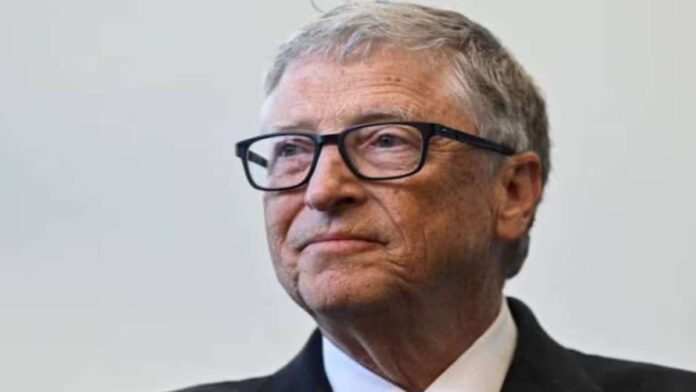According to Bill Gates, artificial intelligence can reduce the gap between rich and poor innovation and make the world more egalitarian. He says AI can accelerate medication discovery and solve health concerns disproportionately impacting the poor.
Bill Gates, a millionaire, has remarked that if we make good investments today, artificial intelligence (AI) can make the globe more egalitarian by shortening the period between affluent and poor countries getting innovations.
In an official blog post titled ‘The road ahead approaches a turning point in 2024,’ the Microsoft Co-founder suggested we can learn from global health about making AI more equal.
“The main lesson is that the product must be tailored to the users,” he stated.
A major impact has been the creation of new drugs. Drug discovery requires huge data analysis, and “AI tools can speed up that process significantly”.
He emphasizes “Some companies are developing cancer drugs this way. The Gates Foundation prioritizes AI solutions that address health concerns that disproportionately affect the world’s poorest, such AIDS, TB, and malaria.
Antibiotic resistance: Can AI help?
Nana Kofi Quakyi of Ghana’s Aurum Institute is developing an AI-powered tool to help doctors prescribe antibiotics without causing AMR.
The technology will go through all the available information—including local clinical guidelines and health surveillance data about which infections are at danger of acquiring resistance in the area—and propose the optimum treatment, dose, and duration, Gates said.
Gates met with Armaan researchers this year to discuss using AI to enhance outcomes for high-risk pregnancies in India.
“Their large language model will one day copilot high-risk pregnancy doctors. It can be utilized in English and Telugu, and the nicest aspect is that it automatically adjusts to the user’s expertise level, whether they’re novice nurses or midwives with decades of experience, said the billionaire benefactor.
When asked if AI can help estimate HIV risk, he replied that many people find talking to doctors or nurses about their sexual history difficult.
“A new South African chatbot simplifies HIV risk assessment. Gates called it an unbiased, nonjudgmental counselor that provides 24/7 advise.
Gates said that “in high-income countries like the United States, I would guess that we are 18–24 months away from significant levels of AI use by the general population”.
“In three years, I expect comparable use in African countries. Though still a gap, it’s substantially shorter than other inventions’ lag durations.
Conclusion
Bill Gates has remarked that if we make good investments today, artificial intelligence (AI) can make the globe more egalitarian by shortening the period between affluent and poor countries getting innovations.
In an official blog post titled ‘The road ahead approaches a turning point in 2024,’ the Microsoft Co-founder suggested we can learn from global health about making AI more equal.
“The main lesson is that the product must be tailored to the users,” he stated.
A major impact has been the creation of new drugs. Drug discovery requires huge data analysis, and “AI tools can speed up that process significantly”.
He emphasizes “Some companies are developing cancer drugs this way. The Gates Foundation prioritizes AI solutions that address health concerns that disproportionately affect the world’s poorest, such AIDS, TB, and malaria.



